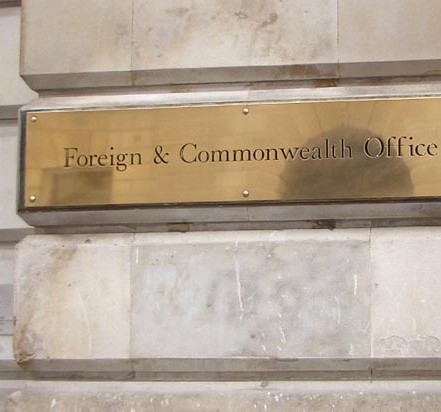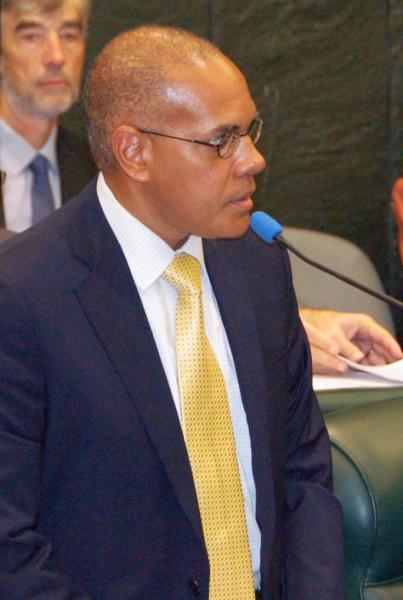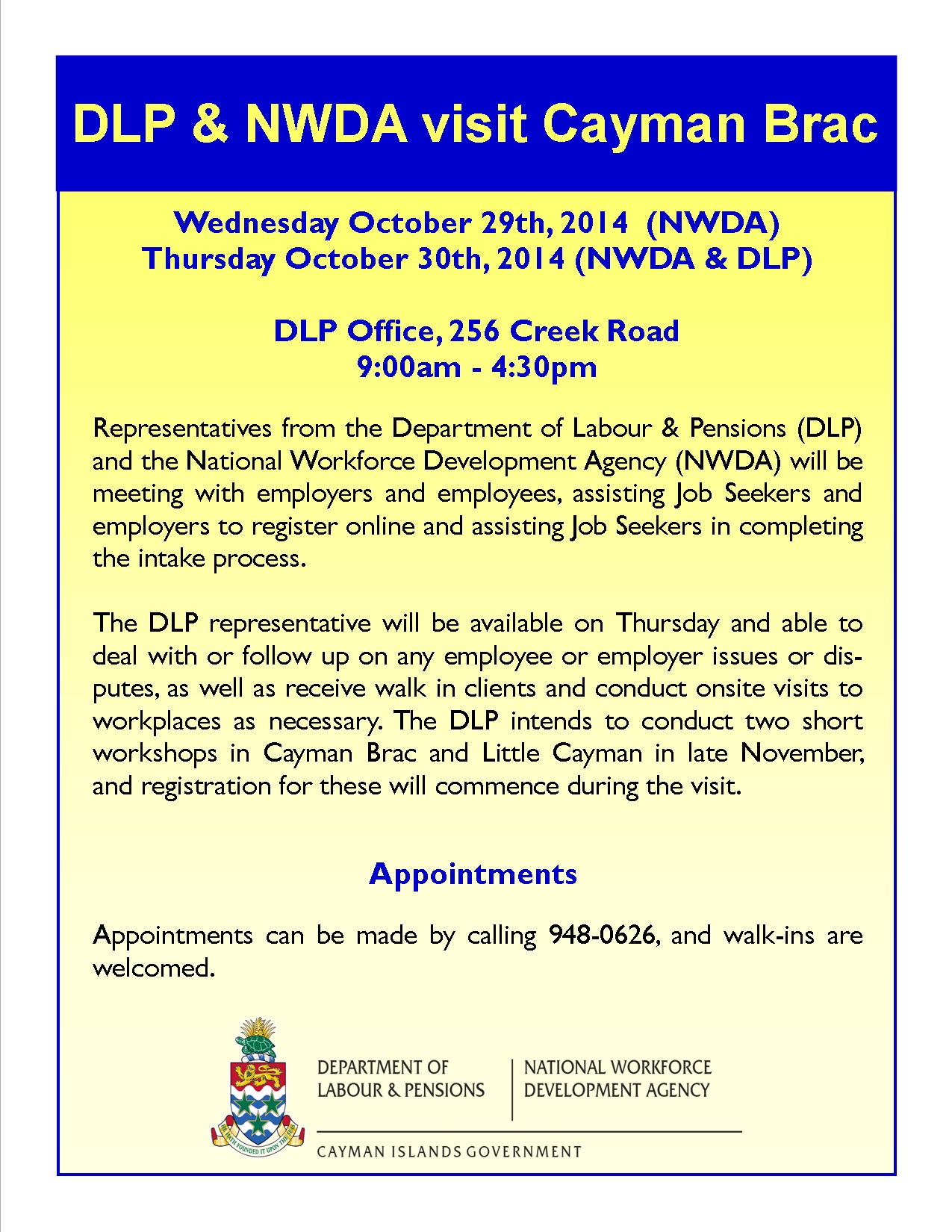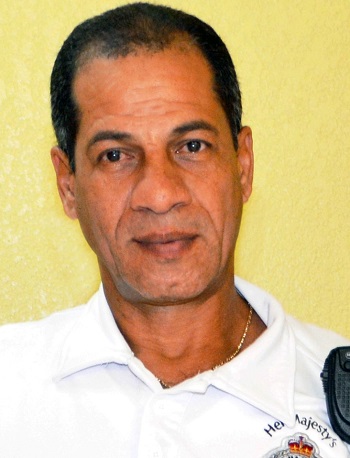Archive for October 27th, 2014

UK blamed for lifers’ tariffs
 (CNS): The opposition leader, the member for East End and government’s veteran back bencher for Bodden Town all railed against the UK last week during the Legislative Assembly debate on the conditional release bill. The new law, when it comes into force, will, among other things, introduce a tariff system for prisoners serving life sentences. This means that anyone convicted of murder, which calls for a mandatory life sentence, will now have a possibility of parole once they have served an estimated thirty years. However, many members were unhappy about the change and blamed the UK for imposing this new regime for lifers.
(CNS): The opposition leader, the member for East End and government’s veteran back bencher for Bodden Town all railed against the UK last week during the Legislative Assembly debate on the conditional release bill. The new law, when it comes into force, will, among other things, introduce a tariff system for prisoners serving life sentences. This means that anyone convicted of murder, which calls for a mandatory life sentence, will now have a possibility of parole once they have served an estimated thirty years. However, many members were unhappy about the change and blamed the UK for imposing this new regime for lifers.
Arden McLean suggested Cayman was “enslaved in the colonial system” and perhaps the time had come “to part ways so we can be in control of our own destiny".
Although most members in the House supported the bulk of the law, which also deals with the management, rehabilitation and supervised release of all offenders, some were concerned that those serving full mandatory life sentences would no longer necessarily die in jail.
The current government has introduced the tariff system to comply not only with Cayman’s Constitution and its Bill of Rights but with the international treaties signed by the UK. The FCO had also made it clear that either CIG dealt with the question of possible parole for lifers or it would impose the tariffs.
McLean expressed his concerns about the fact that local politicians are not in control. He said it took him a long time to come to terms with that because he had entered politics to make a difference but learned that there was in reality little he could do, since Cayman had others who were “masters of our destiny". McLean also raised concerns about liberal judges and those who, he said, would “let their friends" out of jail.
Meanwhile, Opposition Leader McKeeva Bush also blamed the FCO and expressed his concerns. He added, “We are living in perilous times.”
Bush said he believed in human rights but he also believed in an eye for an eye. Bush said that crime had increased since the abolition of the death penalty in Cayman, which he said was also forced upon the country by the UK. The opposition leader questioned whether or not 30 years was enough to punish or deter cold blooded murderers.
Railing against what he said were the double standards of the British, he pointed to discussions in the UK about imposing a life sentence without parole for people who kill police officers. Bush said the UK was taking away Cayman’s choice and he believed that criminals would take advantage of the human rights obligations that government had. He said that although he appreciated the position government was in and supported the rest of the bill, he could not support the introduction of a 30 year tariff for life.
The Progressive’s veteran politician, Anthony Eden, the deputy speaker and first elected member for Bodden Town, was also scathing about human rights as he too railed against the UK and the enforced abolition of the death penalty and now the opportunity for killers to be released.
“We have got to stop the mollycoddling of criminals,” he said, adding that he believed people werescared to come out of their homes. He took aim at the police and questioned what the law enforcement agencies were doing and said the “pussyfooting around” had to stop. Eden said that when he saw what was happening, he had to wonder about the UK's agenda regarding the Cayman Islands.
“They come at us with so many different angles … we can’t seem to satisfy these people,” he said, referring to the British government.
Eden lamented the amount of money spent on prisoners and said he wished the same amount of time and money could be given to the elderly and those who were in need.
Although the members who spoke during the debate on the bill focused on the 30-year starting point tariff, the term served by anyone given a life sentence will not, in fact, be limited to 30 years. In the first instance, judges will have some flexibility to increase or decrease the tariff according to the extenuating or mitigation circumstances of the cases that come before them.
Once a tariff is set, that indicates the minimum term that the offender must serve before he can be considered for possible, but by no means certain, release. The lifer will then appear before the Conditional Release Board, and if they believe he is still a risk to the community in any way, he will remain in jail — and that could mean for the rest of his life. Only if all things point towards successful rehabilitation will the board set a release date.
Lifers will, however, remain under supervision for the rest of their lives, and should they commit an offence of any kind, they will be returned to jail and may still serve the rest of their days behind bars.
The change in the life sentence will address the section of the Bill of Rights which deals with cruel and inhumane treatment. The idea of sentencing someone to life in prison without any hope of every being released is considered torture.
In addition, experts say that when there is no hope of release and nothing to lose, rehabilitation and control of inmates can be difficult.
See related story on CNS: Lifers get 30-year tariffs

Minister emphasizes public accounts improvements
 (CNS): Despite the damning revelations about the state of government book-keeping in the latest auditor general’s reports the finance minister insisted on Friday that things were improving. Marco Archer told his legislative colleagues that since those reports were undertaken the current government has made a number of changes and is committed to improving the management of the public finances. The minister said that there had been important personnel changes in the ministries which had been exposed has having the most problems. Archer said he now expected the quality of financial reporting to improve. He added that there would be amendments to the PMFL to address other concerns as well.
(CNS): Despite the damning revelations about the state of government book-keeping in the latest auditor general’s reports the finance minister insisted on Friday that things were improving. Marco Archer told his legislative colleagues that since those reports were undertaken the current government has made a number of changes and is committed to improving the management of the public finances. The minister said that there had been important personnel changes in the ministries which had been exposed has having the most problems. Archer said he now expected the quality of financial reporting to improve. He added that there would be amendments to the PMFL to address other concerns as well.
Speaking in the Legislative Assembly on Friday about the reports conducted by Alastair Swarbrick’s team at the auditor general’s office and made public last week, Archer said there were still challenging times ahead with a lot of work to do but he said solutions were being developed. He said the current government inherited the current position but having campaigned on a ticket of transparency he said that the government would do all it could to achieve transparency in public finances.
He said over 90% of government entities received qualified or unqualified reports for the year ending 2012 but admitted that the quality of the overall government accounts would depend on every entity. If just one entity was disclaimed or received an adverse opinion the entire public sector statements would be disclaimed. Archer said it has been agreed with the auditor general that governments entire consolidated accounts for the year ending 2013/14 will get a qualified opinion but government was committed to achieving an unqualified opinion for this fiscal year’s accounts.
The minister said he and government finance officials have met with the auditor general to address the issues which are causing the continued disclaimers as he said the auditor was not satisfied that many of the financial statements were complete, accurate or fairly presented with insufficient evidence to support the balances.
He said as a result of the meeting the finance ministry was now developing a standardized submissions package to help the ministries and public authorities present their accounts and supporting documentation properly.
Acknowledging the concerns he said there was a concerted effort to strengthen internal controls to improve efficiency, safeguard assets and improve reliability and compliance with laws. However, Archer also noted that future valuations of government capital assets would also be done in the required format showing a full breakdown of the government’s property assets.
See related story on CNS and the OAG's latest reports below

DLP and NWDA take field trip to Cayman Brac
(CNS): Representatives from the National Workforce Development Agency (NWDA) and the department of labour and pensions will be visiting Cayman Brac this Wednesday and Thursday (29 & 30 October) to help both employers and employees, as well as assisting job seekers and employers lookingfor staff. The team will help those looking for work complete the intake process and help bosses post job vacancies. The DLP representative will be available on Thursday to deal with or follow up on any employee or employer issues or disputes, as well as receive walk-in clients.
The DLP agents will also and conduct on-site visits to workplaces as necessary. The DLP intends to conduct two short workshops in Cayman Brac and Little Cayman in late November, and registration for these will commence during the visit. Appointments can be made by calling 948-0626 but walk-ins are welcome, officials said.

The Big Man Break
The Criminal Procedure Code of the Cayman Islands sets out offences which allow the police to arrest people without a warrant and those crimes which are not. It is a useful guide for those UK policemen hell bent on arresting a judge if the government is to avoid paying out millions of dollars. Nearly all offences are in fact arrestable but for a few exceptions.
Public officials arrested for fraud, neglect of official duty or disobedience of lawful duty are specially exempted from arrest and the public humiliation that other citizens have to regularly suffer.
Some public officials are arrested and in one unfortunate incident a policeman was found thereafter hanging from a tree Wilderness Drive. Others may end up on a yacht in the North Sound waiting for their summons to arrive.
There is no official policy on apology or notice of innocence or compensation if you are found innocent after a time before the courts. You have to return to society and endure whispers and the cutting of eyes as you pass by. Just this week a young man who was accused of complicity in murder and his bail objected to by the DPP suddenly found that he was discharged from the Grand Court and all charges dropped. This is also true for a traffic charge or minor offence. This is a frequent occurrence that should be studied to avoid repetition. More effort has to go into decisions on who is to be charged.
The Premier and Minister of Home Affairs has been silent on these matters that affect some of the people and their family that will have a decision at the ballot box.

Visitor with gastroenteritis stirs up Ebola scare
 (CNS): A woman visiting Cayman from the USA is at the George Town hospital being treated for gastroenteritis and not Ebola after concerns that she may have been infected with the deadly virus. The woman had not travelled to Africa and had arrived in Cayman nine days ago directly from New York. The first patient in New York suffering with the virus, a doctor who had been working with patients in West Arica, tested positive for Ebola last Thursday and is being treated at the Bellevue hospital, NY. On Monday US health officials also confirmed that a 5-year-old boy who had just returned from West Africa to New York is being tested for Ebola after he was rushed to the same hospital with symptoms consistent with the virus.
(CNS): A woman visiting Cayman from the USA is at the George Town hospital being treated for gastroenteritis and not Ebola after concerns that she may have been infected with the deadly virus. The woman had not travelled to Africa and had arrived in Cayman nine days ago directly from New York. The first patient in New York suffering with the virus, a doctor who had been working with patients in West Arica, tested positive for Ebola last Thursday and is being treated at the Bellevue hospital, NY. On Monday US health officials also confirmed that a 5-year-old boy who had just returned from West Africa to New York is being tested for Ebola after he was rushed to the same hospital with symptoms consistent with the virus.
It is not clear why the woman was suspected of having the disease but CNS understands that the possibility that she had Ebola had been conveyed via a 911 call. Government officials said that Emergency Medical Services were called to a house in East End early Monday for a female patient experiencing symptoms of fever, diarrhea, loss of appetite, weakness and sweating. EMS responders complied with protocol to pick up the patient and protect themselves.
“The measures we took were precautionary,” saidHealth Minister Osbourne Bodden. “We took every precaution in our response to this report. The symptoms did not mean that this individual had the Ebola virus. Those are symptoms that can be related to a number of things. We enacted the precautionary measures the government and the Health Services Authority have in place. Public safety is and will continue to be our primary goal.”
The Caribbean Public Health Agency (CARPHA) said Monday morning that the patient’s travel history did not meet the criteria to be indicative of Ebola as she had not travelled outside of New York before her arrival in Cayman some nine days ago.
While Ebola concerns have become an international issues, the Cayman Islands Government has a history of not only overseeing local precautions but the Public Health Department, on behalf of government, routinely communicates with international agencies such the Caribbean Public Health Agency, the Pan American Health Organization, the Centers for Disease Control and Public Health England. Should the Ebola virus reach the Cayman Islands, these organisations have promised technical assistance with regards to the deployment of human resources and supplies.
The HSA also has two certified staff on board to deal with Ebola and is in the process of purchasing a field hospital and other necessary equipment as a precautionary measure should someone infected with the dangerous virus arrive in Cayman.
Child killed, woman arrested
(CNS): Police arrested a 37-year-old woman in connection with the killing of a six year old girl, just hours after the child’s body was discovered early this morning in a car parked on the Queen’s Highway, Chief Superintendent Kurt Walton confirmed Monday. Walton said police had opened a murder investigaiton but would not say whether or not the woman in police custody was the little girl’s mother and whether she had attempted to take her own life before her arrest. The child’s body was discovered at around 4:30am by officers on patrol in East End, further along the Queens Highway. During a press briefing at police HQ, Walton said police activity at a home in the Savannah Newlands area this morning was connected to the murder investigation but would not confirm if the house was where the woman or the child lived.
Offering his condolences to the family for the tragic death of the girl, he said police were unable to say very much at such an early stage in the investigation. He stated that police had not yet established the cause of death and refused to state the nationality of the victim or the woman who was arrested. The senior cop also refused to comment on whether or not the arrested woman's husband was a police officer.
The as yet unnamed little girl is the third murder victim of 2014 and the first young child killed in Cayman in more than four years. Four-year-old Jeremiah Barnes was shot and killed at a gas station in West Bay in February 2010, when a masked gunman opened fire on the family car that he was travelling in with his parents and brother.
Police are urging anyone who has information in relation to this latest murder to please call 949 7777 or Crimestoppers 800 TIPS.

Frontline public servants get deputy governor’s gongs
 (CNS): Senior Social Work Assistant Donette Morris-Seymour was the first government worker to receive the Deputy Governor’s top civil service award for this financial year when she was named employee of the month for July. Morris-Seymour was described as giving much of her own time to ensure her clients' needs are met, coming in early, staying late and working weekends. Meanwhile, in August Marlon Hodgson the manager at the Immigration Detention Centre (IDC), which saw an escalating number of escapes earlier this year was named employee of the month for his work handing the centre over to the prison service.
(CNS): Senior Social Work Assistant Donette Morris-Seymour was the first government worker to receive the Deputy Governor’s top civil service award for this financial year when she was named employee of the month for July. Morris-Seymour was described as giving much of her own time to ensure her clients' needs are met, coming in early, staying late and working weekends. Meanwhile, in August Marlon Hodgson the manager at the Immigration Detention Centre (IDC), which saw an escalating number of escapes earlier this year was named employee of the month for his work handing the centre over to the prison service.
Morris Seymour was said to not only be very helpful to her clients having earned the title of "most helpful" she also holds her clients accountable and tries to empower them to improve their lives.
The deputy governor, Franz Manderson, who created the awards to help boost morale during uncertain times for the civil service and to award those government workers who stand out praised Morris-Seymour for her sensitivity and for putting in extra hours to complete urgent assignments and projects.
 Although the Immigration Detention Centre had been at the centre of some controversy recently after numerous escapes and a near riot at the Fairbanks location when numbers of Cuban migrants detained there increased significantly as a result of repatriation problems, the manager Marlon Hodgson was said to have ensured the refugees receives decent, fair and humane treatment.
Although the Immigration Detention Centre had been at the centre of some controversy recently after numerous escapes and a near riot at the Fairbanks location when numbers of Cuban migrants detained there increased significantly as a result of repatriation problems, the manager Marlon Hodgson was said to have ensured the refugees receives decent, fair and humane treatment.
“Hodgson singlehandedly managed IDC’s recent handover from Immigration to the Prison Service, overseeing all aspects of the transition, including: finance, operations, support services and staffing. He has risen to the challenge of managing and providing a first class service to residents,” a government official said.
Hodgson was also credited with improving physical conditions at the IDC, raising the standard of services for detainees, enhancing staff response to changing client needs and better information sharing about the IDC between the Governor’s Office, the Home Affairs Ministry, Immigration and the Prison Service.
Knowing the importance of communications to maintaining good relations, Hodgson has also been learning Spanish to better communicate with the detainees.
Happy Hour on the rocks after stormy night
(CNS): The stormy night caused something of a hangover for a local pleasure cruiser after the vessel broke from its moorings Friday. The ‘Happy Hour’ was washed up on the rocks in downtown George Town during Friday night's localised storm. Although other vessels were also believed to have had a bad time, according to Hazard Management, there were no other reports of any significant damage to property during the nighttime drenching. According to the latest forecast, Cayman can expect more turbulent weather over the next few days as a stationary front to the east spreads in and out of our area during the next 24 hours.
Meanwhile, the remnants of TD9 has turned into Tropical Storm Hannah off the coast of Nicaragua, though it is not expected to pose any threat to the Cayman Islands.

Cops open child death enquiry
(CNS): Police have just revealed that a child has died in the eastern districts under suspicious circumstances. An RCIPS spokesperson has offered no further information other than the death was reported at 5:43am on Monday 27 October off the Queen's Highway and an enquiry has begun. No other sources have reported anymore details. In the meantime, until police release further information officers are asking anyone who has information in relation to this death to please call 949 7777 or 800 TIPS.

Full jail terms to be served
 (CNS): There will be no more unsupervised early release for anyone sentenced to jail with the introduction of a new law that changes the regime surrounding the treatment of offenders and their release. With no more 'get out of jail free' passes, all inmates will be required to undergo training and rehabilitation before they walk out of HMP Northward, and prisoners who satisfy the new release board will still serve the remainder of their sentence under strict supervision. No prisoner will be released before serving 60% of his jail term behind bars, and if deemed ready to return to the community, he will be properly supervised throughout the remaining 40% and any infractions will see offenders back in their cells.
(CNS): There will be no more unsupervised early release for anyone sentenced to jail with the introduction of a new law that changes the regime surrounding the treatment of offenders and their release. With no more 'get out of jail free' passes, all inmates will be required to undergo training and rehabilitation before they walk out of HMP Northward, and prisoners who satisfy the new release board will still serve the remainder of their sentence under strict supervision. No prisoner will be released before serving 60% of his jail term behind bars, and if deemed ready to return to the community, he will be properly supervised throughout the remaining 40% and any infractions will see offenders back in their cells.
The conditional release bill, which passed through its second reading on Friday evening in the Legislative Assembly, creates a new regime regarding how much time prisoners serve and how that times is managed. Replacing the parole provisions in the prison law, the premier, who introduced the bill, said it would result in a lower risk of re-offending.
Explaining the major changes in the bill, Alden McLaughlin, who is also the home affairs minister and responsible for the prison, said the law focused on rehabilitation and was aimed at reducing the country’s very high rate of recidivism. Cayman has a 73% re-offending rate, which is the highest in the Caribbean, and experts say it is because prisoners are released early without having undergone proper rehabilitation or training. They are released without any monitoring back into the exact environments they left before landing in jail.
“We are told by the police all the time that when certain people are released crime spikes and when they round up the set of people and they are back in jail there is fall-off,” McLaughlin said. He added that the current spike in crime was likely down to the release of certain prisoners and once the police have the evidence to arrest and charge them, the crime level will fall.
McLaughlin explained to his colleagues that the current early release system is not conditional on prisoners reforming and when released from Northward offenders are not monitored or supervised.
“Under this law no prisoner will be released without supervision,” he told the LA. “Ten years will mean ten years,” he added, explaining that at least 60% must be served inside jail. Then the prisoners will be entitled to appear before the conditional release board and if the offender has successfully completed rehabilitation and training, he will be released to serve his remaining 40% under a supervision order with the Department of Community Rehabilitation until the full sentence is spent.
McLaughlin said although people expected wrongdoers to be punished, government had to address offending behaviour and make a concerted effort to reform people before they are released because, despite a long history of attempts at reform, none had worked.
At present, most prisoners are released after serving two-thirds of their sentence, regardless of their state of rehabilitation and are not subject to any supervision. The premier said that in some cases prisoners can be released even earlier because they can appear before the parole board, where release can be granted after just one third of a prisoner's time being served, depending on the offence. If they are released 'on license', this is enforced until what would have been the early release date of two-thirds of their sentence.
Under the new system there will be no consideration of release until inmates have served 60% of their sentence. McLaughlin said that in order to be released to serve the remaining 40% in the community under supervision, prisoners must be considered at a low risk of re-offending.
He said existing prisoners will not be adversely affected or spend longer in jail because of the new law if their early release date comes sooner than the new 60% term.
The premier said that government had to address the poor recidivism rate to address the crime problem. He said that the police were criticised heavily for not doing enough to fight crime but while they might not be perfect, by the time the police are involved “a lot of other things have gone wrong”.
He said he wasn’t going to "beat up" on the police or the civil service to satisfy populist sentiments and added that government had a duty to act constructively and address the issues, not pay lip service or sound off.
“Government is trying to do something to address recidivism and find a means for those who offend over and over again to get off that wheel,” he said.
McLaughlin said it was by no means the end of the story and it will not solve the crime problem but he described it as a major step and offenders will know that they will not get out of jail early unless that have taken part in a rehabilitation programme.
He admitted that the new regime would put pressure on the Department of Community Rehabilitation and he was very conscious of the agency’s ability to cope with the increased workload but he said that was not a reason to not do anything.
“I am painfully conscious of these issues but does that mean we sit on hands and not make an effort to change a system that not working?” he asked.
Raising his concerns about the civil service being the target of considerable criticism, he said that, like it or not, government would need to recruit the necessary staff in the prison, police, courts as well as the social service departments.
“We need these things,” he said, as he pointed out the pressing need to address crime and the social issues at heart of the criminality and the need to find the resources for the agencies dealing with the criminal justice system and social depravation.